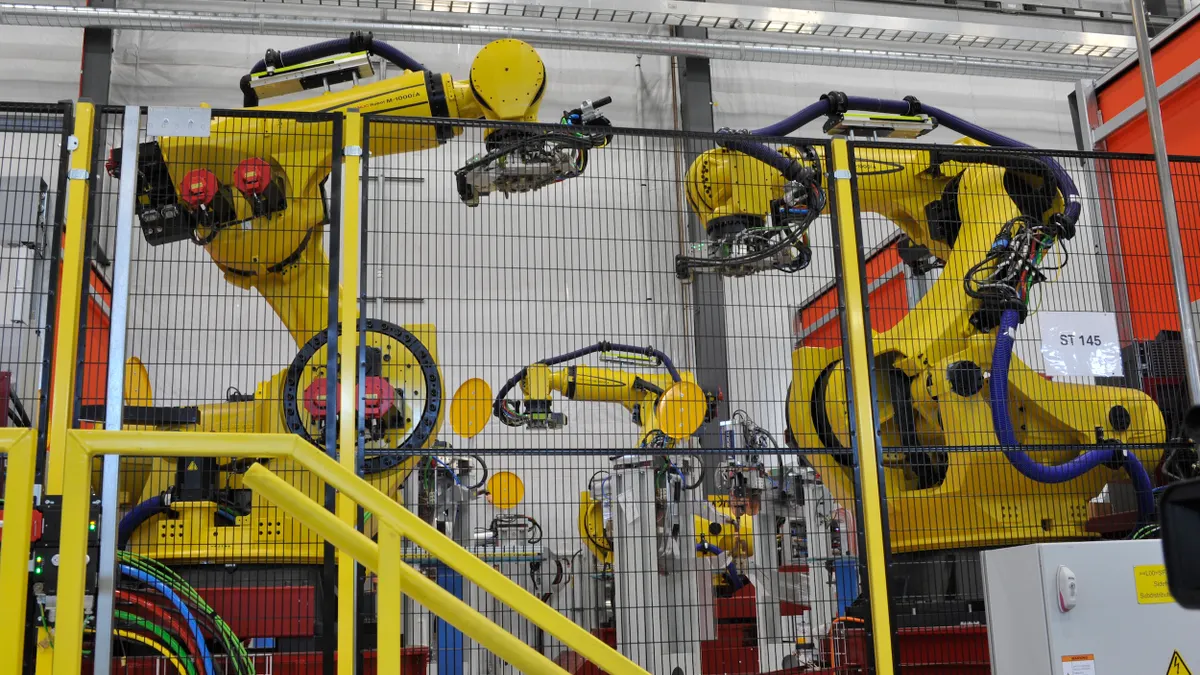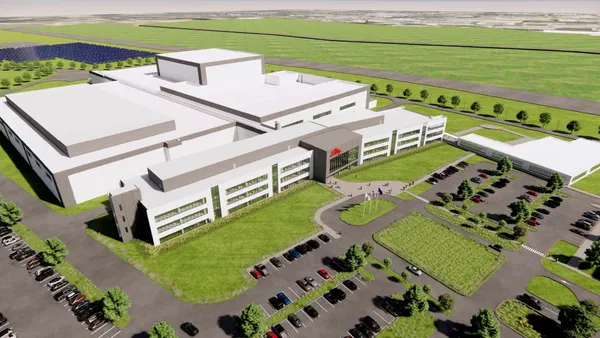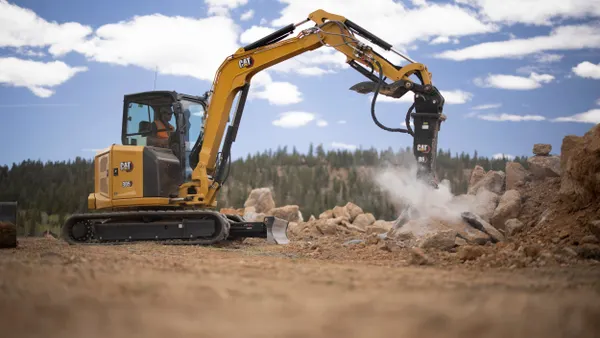The Commerce Department has launched a Section 232 investigation of robotics and industrial machinery imports, according to a to-be-published federal filing.
The agency started the investigation on Sept. 2 to determine the national security impact of importing a wide array of equipment, including robots and programmable, computer-controlled mechanical systems.
The equipment spans computer numerical control machining centers, turning and milling machines, grinding and deburring equipment, and industrial stamping and pressing machines. Other items under investigation include automatic tool changers, jigs and fixtures, and machine tools for cutting, welding, and handling work pieces.
Also under review are application-specific specialty metalworking equipment used to treat, form, or cut metal, such as autoclaves and industrial ovens, metal finishing and treatment equipment, electrical discharge machining gear, and laser and water-cutting tools and machinery.
The department excluded unmanned aircraft systems, which are being reviewed under a separate Section 232 investigation.
The action is one of the latest in a string of similar import probes on sectors such as trucks, critical minerals and aircraft and jet engines. Similar investigations into steel and aluminum, as well as cars and auto parts, have led to tariffs from the Trump administration.
The department plans to publish a notice of the industrial equipment probe on Friday in the Federal Register, which will start a 21-day public comment process, including data and analyses submissions.
Specifically, the department wants information on domestic production and demand, the role and risks of major foreign exporters, and the impact of foreign government subsidies and trade practices on the robotics and industrial machinery market.
Other information sought by the department includes the effects of current trade policies related to robotics and industrial gear and whether further measures, such as tariffs and quotas, are needed to protect national security. The agency also wants to know the impact of robotics and industrial machinery on U.S. manufacturing employment and whether the supply chain for such goods is susceptible to foreign exploitation or control.














